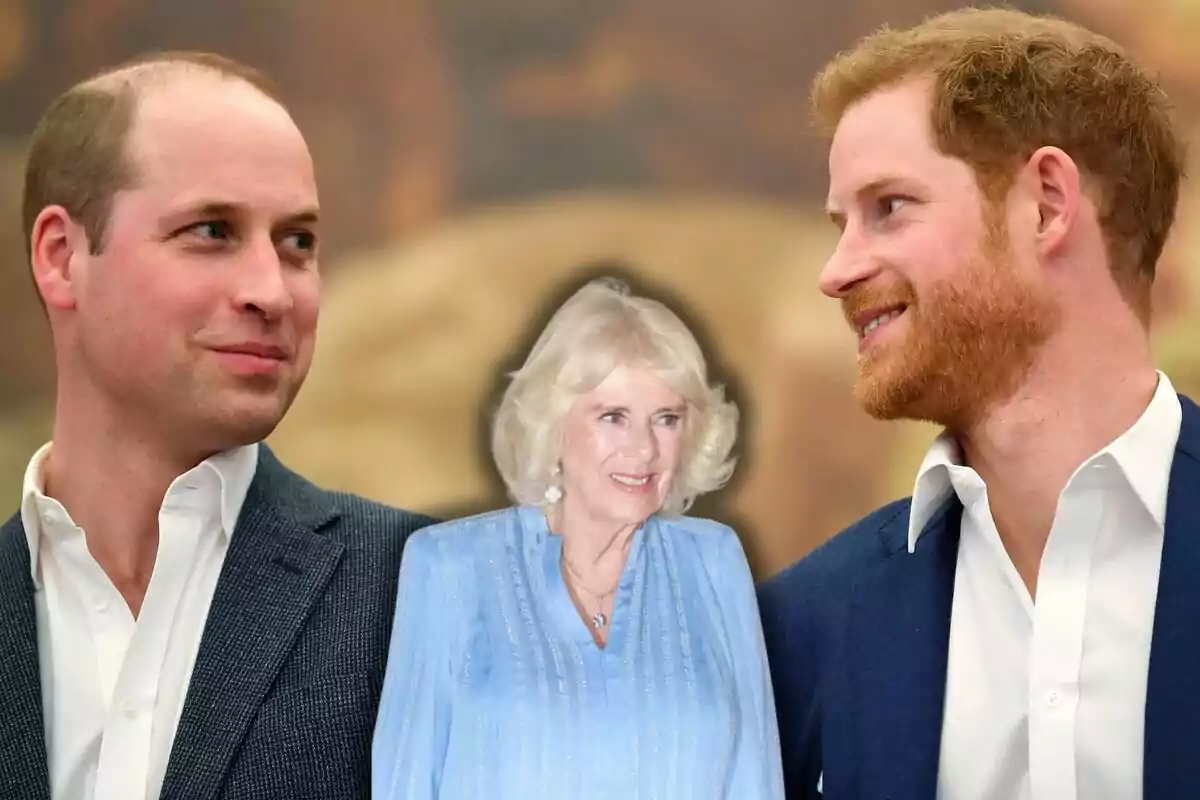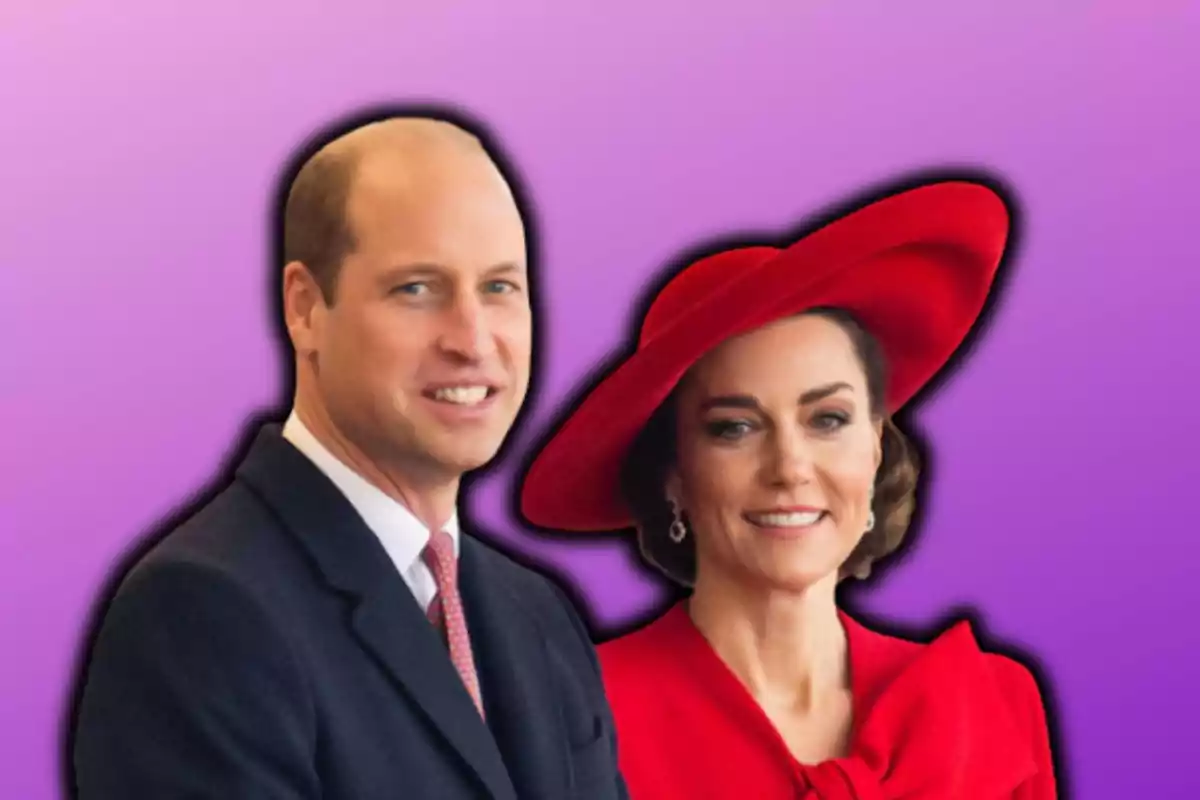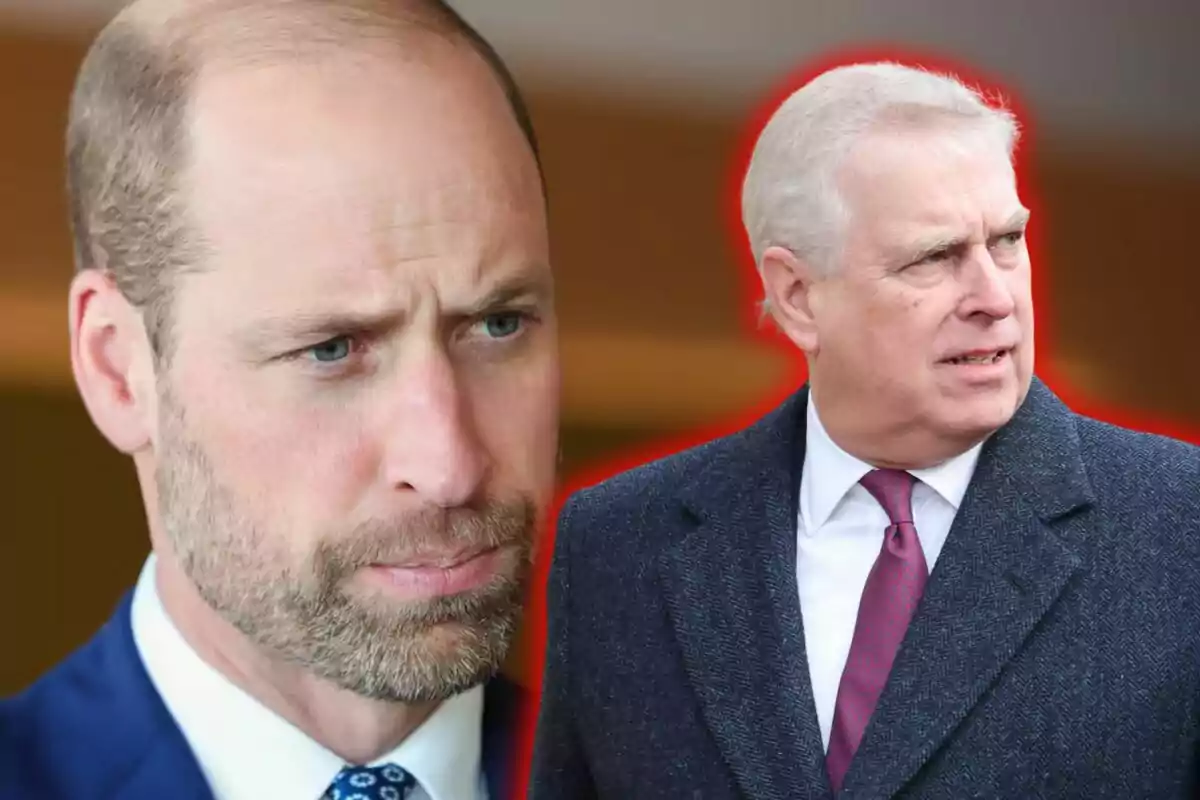The shadow of a new conflict within the British royal family has once again cast a pall over the public scene. Although the Jeffrey Epstein scandal and the repercussions suffered by Prince Andrew seemed to be in the past, the tension between Duke of York and his nephew William has now reached a key point, just as the heir to the throne strengthens his position.
what has happened?
Sources close to the royal circle have confirmed that Prince William is making firm decisions to block his uncle's return to institutional life. Experts such as Hilary Fordwich, quoted by Fox News Digital, highlight that the relationship between the two "has been tense and distant for years," and that William feels "deep resentment" toward Andrew.
This estrangement is not new. It is reflected in the joint decision by William and Kate Middleton not to attend the Easter service at St. George's Chapel, while Andrew did attend alongside Sarah Ferguson and his daughters, Beatrice and Eugenie, who have intensified their support for their father.

In addition, William is said to be leading the line of a future monarch who seeks to protect the reputation of the Crown without considering second chances.
reactions from those involved
Kensington Palace has not issued any statements, but their silence already reveals a lot. Meanwhile, sources close to Buckingham Palace have confirmed that King Charles III has issued an explicit message to dissociate his image from the latest episodes involving his brother: the official statement from the Palace aimed to clarify that the king is not involved in recent controversies linked to espionage.
Even so, despite the forced distance, the king seems to show a more measured attitude than his son, keeping a certain fraternal bond with Andrew and avoiding actions that are too drastic and could definitively break the image of unity.

an interview that changes everything
The case that marked a turning point was the 2019 interview with BBC, where Andrew tried to defend himself from his ties to Epstein, but the result was so negative that it led to his withdrawal from official activity. He was then stripped of military honors and royal patronages, removed from social media, and distanced from ecclesiastical sponsors and news outlets.
Since then, although his presence has been reduced, he has occasionally appeared at family events—such as the Easter service—leading ballots alongside his close family, which has caused alarm within the royal circle.
More recently, accusations have emerged linking him to alleged Chinese espionage, which forced the Palace to issue a statement to make it clear that the king had no connection to the meetings associated with the "Eurasia Fund." This new controversy further intensifies the image of a figure increasingly incompatible with the modern monarchy.

what is William aiming for?
William's strategy follows a clear logic: to ensure that the institution evolves toward a stronger figure, tied to public trust, and frees the Crown from figures who generate controversy. In contrast, Charles III keeps a stance based on personal affection, but with the caution not to compromise the institutional image.
The support of Beatrice and Eugenie for their father also reflects a complex reality: although Andrew remains part of the family core, his public role has diminished, and he himself seems to live that self-imposed exile at Royal Lodge, a residence he still keeps by contract, without official support.

